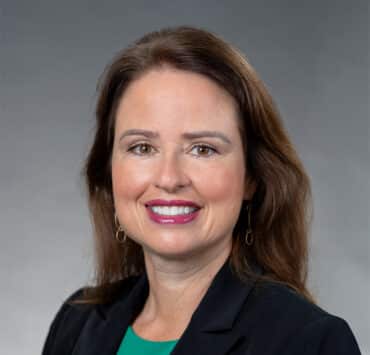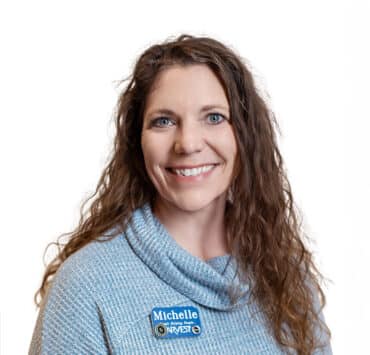In March 2024, Dioun Health burst onto the healthcare scene in Boston, focusing on acquiring and consolidating home healthcare businesses, looking to tackle the problems acute care hospitals are facing from a different angle, post-acute care. To help in its mission, the newly formed company hired industry veteran Jim Jenkins as its CFO.
“I’ve been in healthcare finance my whole life,” he begins. “I was born and raised in Massachusetts and worked for a few of the bigger systems in the state. I worked my way up at UMass Memorial Healthcare, working my way up more on the FP&A (financial planning and analysis) side of things rather than the traditional CFO path.”
Jenkins left Massachusetts for Texas in 2017 and took leadership positions at health systems such as HCA Healthcare, Steward Health Care System, and Community Hospital Corporation (CHC).
Truth be told, he wasn’t looking for a new job opportunity when a recruiter came calling five years later, but the fact that he could return to his hometown played a role in his decision.
“My kids were seven and nine at the time, and if I was ever going to move home, it made sense that now would be the time to do it,” Jenkins says. “We moved back, and I worked for the Beth Israel Lahey system as a full-time CFO for their hospital in Plymouth and was also asked to step into a system-wide role on an interim basis, with oversight of accounting, accounts payable, payroll, budgeting, [and] decision support.”
While there, he noticed that the acute care market in Massachusetts was incredibly broken. He feels COVID-19 made things a lot worse, and each of the major state health systems was losing a significant amount of money the past few years because of this.
“I love being challenged to find creative solutions and get the work done in a high-paced environment, but at the end of the day, it’s about providing exceptional patient care.”
Jim Jenkins
“The struggles are combination of a lot of different things,” he says of the market. “When COVID happened, one of the first things we did as a nation was shut our schools down. Many older nurses decided to retire and our pipeline to bring new nurses in was shut off. This led to a reliance on high-cost agency staff. Additionally, because of staffing challenges on the post-acute side, people are staying a day to a day and a half longer than they used to, which is costly, and there’s no reimbursement for it.”
So, when Jenkins was approached by Dioun Health earlier this year, he was intrigued at joining the startup and its unique approach at the problem. The company’s plan, according to Jenkins, is to bridge the gap in the Massachusetts acute care market and help get patients out of hospitals sooner, reducing costs in the long run.
“A lot of the challenge in acute care is there’s nowhere for patients to go, so we would like to create that avenue and create capacity outside of a hospital, helping acute care by improving quality and decreasing readmissions,” he explains. “In order to do that, you need an organization to take the lead, and right now there isn’t that.”
Dioun Health plans to acquire companies, set up the infrastructure and economies of scale, partner with different organizations, and create something on the post-acute side that would help the region.
“We have two sides of the organization,” Jenkins shares, noting founder Cameron Dioun’s focus is on inorganic growth—the mergers and acquisitions—while Jenkins is responsible for creating the economies of scale, which he was successful at when working at Beth Israel Lahey.
“A lot of those efficiencies are gained through system implementations. You’re going to get these mom and pops that are all doing things differently and are very fragmented, so it’s about creating synergy,” Jenkins notes. “Some of it is through policies and procedures, making sure everybody is doing the same thing and the right thing. We’re trying to create those solutions to offer low-cost, high-value care.”
“I’ve been in healthcare finance my whole life.”
Jim Jenkins
The interest in healthcare finance wasn’t something Jenkins originally set his sights on. In high school, he excelled at math and science, so he went to a technical school to study chemical engineering. While he was good at it, he realized quickly he didn’t enjoy it.
“Both my parents were in healthcare, and while I was in college, I was working for UMass as a patient registrar as a part-time job,” Jenkins recalls. “I made the switch to business management and already had my foot in the door within healthcare. What I do like about it, especially in the finance space, is I can still apply a lot of what I learned from chemical engineering; it’s about process, optimization, and doing things as efficiently as possible.”
The timing for joining Dioun Health seemed right. Working for Beth Israel Lahey on the acute-care side felt like “banging your head up against the wall,” Jenkins says.
“The system isn’t structured in a way for it to work,” he says. “This was an opportunity to do something new, something different, and hopefully apply my skill set and background to a different group and solve the same problems but from a different angle.”
As of early June, Dioun Health has four letters of intent signed with different companies—two in Massachusetts, one in Pennsylvania, and another in New Jersey. At the current pace, it hopes to add a new LOI each month, with a completed acquisition goal of one per quarter and eventually one each month.
“We have a really great board and leadership team, and we anticipate a lot of growth over the next two to three years,” Jenkins adds. “I love being challenged to find creative solutions and get the work done in a high-paced environment, but at the end of the day, it’s about providing exceptional patient care.”
USA Senior Care Network (USA SCN) brings together Medicare Supplement Insurance carriers and quality healthcare facilities in a nationwide network for over 11 million Medicare Supplement policyholders. USA SCN seniors have Traditional Medicare and a secondary Medigap policy. The innovative network benefits everyone by managing costs, keeping premiums affordable for a growing senior population, and helping attribute these Medigap policyholders to participating hospitals and their providers. Thousands of credentialed hospitals and other medical facilities have contracted with USA Senior Care Network to gain increased patient volume and revenue on inpatient and outpatient procedures and services.


